- Home
- Greg Keyes
The Blackgod Page 3
The Blackgod Read online
Page 3
It was wearing thin, and she wanted to go with Perkar and Ngangata. They were only two, and not as nosy.
Why wouldn’t he take her? Did he think she didn’t know where he was going—that she cared? She knew he was going to see the goddess he was in love with; she had heard Yuu’han tell him that her stream was only a short ride north. Did he think that she would be jealous, that she loved him in some silly, romantic way? If so, then he remained a stupid barbarian and had learned nothing of her since they met. She didn’t care about the goddess; she just didn’t want to be left alone with the Mang and their eyes. She didn’t want Perkar to go off and be eaten by some snow-colored carnivore. Mostly, she wanted him to stop blaming her.
Or maybe he didn’t really blame her for the twists his life had taken. Maybe she was just blaming herself. Maybe every time he made it clear how guilty he felt about everything, it only reminded her that it had been her silly, childish wish at the fountain that had brought him down the River to be her “savior” in the first place—that all of the horrible things that tasked him so were really her fault.
It had taken an instant of weakness at the fountain, that was all—one single moment in her life when she had thought it might be nice to have someone other than herself to trust and count on. Wasn’t she even allowed that? She guessed not, not when the Blood Royal in her veins could make such wishes come true.
Maybe she was just mad at him because there was no one else suitable to be mad at. Not Tsem, faithful Tsem, waiting back at the Mang village recovering from near-fatal wounds he received saving her. But it was someone’s fault that she was in the wilderness, with only the single book her old teacher Ghan had managed to send her; she had read it twice now. And it was surely someone’s fault that she was doing boring things like scraping hides while Perkar and his friend Ngangata went hunting beasts and roaming across the plains like wild brothers.
Still fuming when they made camp, she rebuffed Perkar’s single attempt to make amends, and, not knowing what else to do, took out some of her precious paper, her pen and ink, and began writing a letter to Ghan, the librarian.
She began:
Dear Ghan,
I think that I will never be Mang. I know this is a peculiar way to begin a letter, but I have never written a letter before, and the best thing I can think of is what I am thinking. I shall never be Mang, though I thought for a time I might. I have learned to cook and tan hides, to praise the men when they return from the hunt, to watch children when the married women—many my own age—are busy. None of these things are difficult or bad, once one learns to do them; it is just that they are not interesting. The Mang seem to lack curiosity, for the most part, seem to believe they understand the world as much as it can be understood. In this, they are no different from most people I knew in the palace. Wezh, for instance, my onetime paramour—how angry you were with me for humoring him, and for good reason—what does he care for knowledge? I think that people everywhere must generally be content without knowing very much.
Not that knowledge has ever made me content; it has always complicated my life. It is only in the action of discovery that it brings me any sense of satisfaction.
So I will never be Mang, any more than I could have been Nholish. I can only be Hezhi, and perhaps, someday, Ghan, for you are the only person I know who shares my disease, whose life I ever aspired to lead.
I am safe here, I believe, at least from the power of the River. As you suspected, the change in my body ceased when I left the River behind—unnatural change, that is, though some of the “normal” changes I continue to face seem at least unholy. But whatever happens to me, whatever fate befalls me now, it will not be that obscure hall beneath the Darkness Stair where the Blessed dwell, where my cousin D’en and my Uncle Lhekezh swim about like eels. It will not be that.
I should tell you a bit about the Mang, to correct some of the more fanciful accounts in The Mang Wastes, the book you sent along to me. For one thing, they do not beat their children to make them strong; on the contrary, they are perhaps too lenient with them. They also do not live entirely on horseback, sleeping and making love in the saddle—though both occur now and then, I hear. They live for most of the year in houses of timber and clay known as yekt. During certain seasons they move about in smaller groups, but even then they carry skin tents called ben’ which they can erect in a few moments. The accounts of them living only upon the flesh of giant beasts with snakes for noses and long sabers of bone instead of teeth are partially true, however. I have yet to see such a beast—the Mang call them nunetuk—but I am told that they exist. Men hunt them on horseback with long lances, and it is very dangerous. More often, however, they hunt deer, bison, elk, rabbit, and so forth. (Today I saw dubechag, beasts like water oxen but much larger. They were unbelievable; they reminded me that there is wonder here.) Most of what they eat isn’t hunted at all, as I should well know, for women spend days at a time picking berries and nuts, digging up roots, making bread (they trade for the flour) and so on. They also keep goats, some of them, for milk and meat. The food is filling but bland—they don’t have much salt and seem careless of spices. I miss Qey’s black bread, pomegranate syrup, coffee, and River rice! Please find some way of telling Qey so, but do not endanger yourself.
My light is fading; now I write by firelight, and the women are beginning to talk about me; I suppose I should do some chores. First I must tell you something important.
Our escape plans went wrong, as you know, and only Perkar and his sword enabled us to leave Nhol. We were betrayed, Ghan, by the one called Yen. I did not tell him anything—I would not have jeopardized your life so—but Yen was not, as he claimed, a young engineer. He was, I think, an assassin, a Jik. His real name is Ghe, or so he boasted. Perkar killed him, cut his head off, so he is no danger to you. But be careful, Ghan. He may have told others about the help you gave me; he observed us so closely, I think we had no secrets from him. I am constantly surprised by the masks people wear. I trusted Yen, thought he liked me, and yet he was my worst enemy. I thought you hated me, and yet you were my most loyal friend. I miss you.
Whoever takes this letter to you will be instructed not to give it to anyone else. I’ve written it in the Middle Hand so that even if someone else does intercept it, they will probably have to bring it to you for translation!
I’ll write more later.
Hezhi sighed, sprinkled powder over the wet ink, then blew it off. She waited a bit, there by the fire, for the ink to dry, meanwhile taking over the chore of stirring the stew from Grumbling Woman, the oldest of the women on the trip.
Duk, Brother Horse’s granddaughter, only a year or so younger than Hezhi, sidled over and squatted next to her, shot long, obvious glances at the paper.
“What were you doing?” she asked, when Hezhi did not readily offer any explanation in response to her nonvocal query.
“Writing,” she answered, using the Nholish word. There was no such word in Mang.
“What’s that?”
“Putting speech down so that someone else can see it.”
“See speech?”
“Those marks stand for words,” Hezhi explained. “Anyone who knows them can understand what I wrote.”
“Oh. Magic then,” Duk said.
For a moment, Hezhi considered explaining. But this was Duk, who was content to think that Nhol was at the very edge of the universe, that anyone sailing beyond on the River would plunge into an endless abyss.
“Yes,” Hezhi agreed. “Magic.” And she reflected that if she were ever a teacher, she would be a teacher like Ghan, accepting only the brightest. She had no patience for anyone else.
“Then you should be careful,” Duk whispered. “There are already those who say you are a witch.”
Hezhi snorted but then became more thoughtful. Being thought a witch was dangerous. It was the kind of thing that could get you killed in your sleep. She would have to think on this, certainly.
“I’m not a witch, Duk,
” she said, her best response for the moment.
“I know, Hezhi. You are just very strange. From Nhol.”
“Well, sugar candy and brass bells come from Nhol, too, and everyone likes them,” Hezhi replied.
“That’s true,” Duk agreed. “Oh,” she then went on. “Mother wants us to lace together those boots.”
“Ah,” Hezhi said. That was why Duk had wanted to know what she was doing; not because she really cared, but as an overture to conscripting her. She shrugged. “Very well.”
Morning beat the snow-covered plain into brass, and they rode straight into the glare of it. The novelty of snow was beginning to wear off for Hezhi; it was becoming the same nuisance to her that it was to everyone else.
Not long into the day, Perkar and Ngangata rode over to say their farewells. Perkar had that worried, put-upon look that she was coming to recognize instantly. Perhaps she was becoming Mang, at least in that way. In Nhol she had rarely paid much attention to what others might be thinking.
“I’ll rejoin you in a few days,” Perkar told her. “Give my regards to Tsem.”
“I will,” she replied, trying to keep her voice neutral, trying to be nice.
Perkar nodded, then leaned a bit closer. “When I return, we shall race, you and I. Practice your riding!”
His attempt to sound jovial failed, but she relented and smiled—just a little smile—to let him know she didn’t hate him. It was the kind of smile she used to give Qey when the old woman was on the verge of tears. Just enough, and no more.
But Perkar, the dolt, replied with a big grin, certain that he had won some victory.
“Watch him, Ngangata,” Hezhi told the half Alwa, “though by now you must be weary of that task.”
Ngangata quirked his mouth evilly. “True enough. Perhaps I will do us all a favor and ‘take him hunting.’”
Brother Horse, not far away, clipped out a little chuckle at the reference—the plot of half a dozen Mang stories in which an unwanted child was “taken hunting” in some faraway place and abandoned there.
Perkar, a bit slower than Hezhi when it came to learning Mang, looked merely puzzled by the remark and the reaction it evoked. Hezhi had to suppress an actual smile then: Perkar was at his most appealing when he looked perplexed.
Hezhi watched the two until they were black specks on the horizon, gone.
She kept to herself, after that, though Duk and Brother Horse both tried to start conversations. Hezhi, however, was thinking about her next letter to Ghan. She sorted through the things she had learned since leaving the city and lagged Dark back so that she could watch the motion of the hunting party. The Mang liked to laugh and play, but when it came time to do something, they did it. Not for the approval of some court, not to win the respect of others, but because their lives depended upon it. In the movement of the horses and their riders, little motion was wasted; packs were distributed evenly so that no one animal was burdened more than the others. Not that there were no lazy, selfish, or stupid Mang; but such persons learned to do what they must anyway, because even a mother would indulge her child only so far. What she had written to Ghan was true; children were not beaten. Their punishment consisted of being ignored, even to the point of not being fed when they were too willful. A Mang learned early that cooperation and hard work were the only secure route toward a full belly, something she herself was having a hard time adjusting to—in the palace there had never been any question about whether she would be fed or not. Still, despite the drudgery of the work, in peaceful moments it brought a subdued joy, like reading a well-written phrase, not flowery, not audacious, just saying what it should say clearly and perfectly.
She wondered what the Ben’cheen would be like, how interested Ghan might be in the goings-on there, and her heart lifted a bit more.
It will be good to see Tsem, too, she reflected, and decided that perhaps her anger at Perkar was, after all, inappropriate. She had never needed anyone before, never been annoyed at someone simply for not choosing to remain near her. What was the point in becoming too dependent on a barbarian she hardly knew?
Satisfied for the moment, she glanced out at the landscape once more. Up ahead—half of the horses had already passed it—she could see a little cairn of stones. As she watched, Brother Horse reined in his horse, dismounted, and added a stone from his pack to the pile. Hezhi thought to herself that she should remember to ask him why… and then she saw it.
Though “saw” could never describe the way her eyes were invaded, as if they were doors forced by soldiers storming a house. Images and sensations far removed from mere vision raced through those shattered portals and assaulted her mind. It was a shivering of the air, like the outline of a ghost, like her father conjuring, like the string of a lute vibrating, but it was something much more violent than that, a rape, and she shrieked at the unexpectedness of it, at the alien thoughts that suddenly filled her head like crawling worms and spider hairs. She gagged and turned away, only vaguely aware of a voice, shrieking—her own voice. She was as she had been by the River, growing, her power becoming greater as her self shrank away beneath a flood of motives that were no more hers than the distant stars. Then she lost that association, shuttered her eyes against the terror, but it was still there, in her head.
And then it was gone, leaving only a confused memory, a beast who crossed the trail and left only its stench.
Brother Horse was beside Dark, murmuring something soothing. He was dismounted, she saw, holding out his arms to her. She felt, for a moment, that she would not need his comfort, for she seemed not to feel anything at all besides confusion. Her body, however, knew better than her shocked mind, and as the first of many sobs heaved from her tiny chest, she slid from Dark into Brother Horse’s arms, the scent of leather and smoke and old man. He stroked her hair and said nothing of consequence. Nothing, that is, save for one brief statement.
“I was afraid of this,” he murmured. “I feared this would happen.”
II
Rebirth
Ghe awoke. Something was trying to eat him.
It was something massive, an impression of fish, snake, and scorpion all at once. It nuzzled against him, fine tentacles groping at the strands of power that held his life together. This he noticed only peripherally, without any real fear. All of his fear and emotion was consumed in a flame that racked his body with trembling need, a need so great he did not even begin to understand it, one that allowed no space for other concerns. Every fiber of him yearned, pleaded, begged. He gasped and pushed away from the monstrous nuisance, searching for whatever it was he needed so badly. He sucked in a breath and his lungs stung as if he had inhaled shards of glass, and he suddenly understood that he had not breathed in a great while…
The thing took hold of him with cables of living flesh, and Ghe snarled, turned on it, and lashed out with the edge of his palm and with all his objectless frustration. The blow glanced harmlessly from the armored skin of the thing, but at the same moment, the beast seemed to open up, become a fine webwork of lines, clustered about a knot of color so tantalizing, so very beautiful, that Ghe cried aloud. He recognized, in that instant, his need. It was hunger he felt, magnified and distorted beyond all comprehension, but still hunger. Hunger for what he saw, for the light and life of this thing. Howling like a dog, he reached, tore at the rich heartstrands of the monster, snapped them like spider-web. He understood that it was not his hands that did this—he could see them, motionless against the rubbery flesh—yet as the strings of light writhed apart they seemed to burrow into his palms, course like fiery new veins up his arms, into his chest, burning into the cavern where his hunger dwelt and filling it with substance. It was such a profound pleasure and agony that it threatened mindless delirium. The fish-thing struggled, tore at him with claw and stinger, but its life gave Ghe strength, and pain meant little in the face of his hunger. Soon enough, the beast lay still, the last feeble strands of its life drifting into the waist-deep water like shed hairs.
>
Only then did Ghe look about him. It was dark, pitch-dark, and yet he could see. He was beneath the vault of a great hall, majesty cloaked in darkness, drowned in water, smeared with filth. Water, cold and flat as lead, filled the place. Four hallways ran out from the great chamber, each blocked by a massive iron grille.
“Where am I?” he asked aloud of the darkness. “What place is this?” But it seemed to him that it was his place, his throne room. He could see the throne itself, carven alabaster waves lapping down from it to join the real water. Thoughtfully, he approached the magnificent chair, walking up the steps to it and out of the water. After a moment’s reflection, he settled into it and surveyed his newfound kingdom once again.
Far off, down one of the halls, something moved, rippling the water. He could sense the flicker of its heartstrands. That stirred a faint hunger, but he was sated enough to be curious. Concentrating, he saw another, and another.
“You there,” he grated, his voice harsh and clotted from long disuse. “You there,” he repeated. “Who are you?”
For a long moment no reply came, but then slowly, with seeming reluctance, one of the swimmers approached. A semi-Human head arose from the water and peered at him through the grille.
“You killed Nu,” the head accused.
“Did I? This Nu tried to eat me.”
Gar-teeth flashed in the fishlike face; bulging eyes goggled at him. “Hezhi? Is that you? Hezhi, my niece?” the head asked.
Ghe narrowed his eyes. “What do you know of her?” he demanded.
“Ah, so it is not you, not Hezhi.” The head sniffed. “Not of the Royal Blood at all, but like the Royal Blood. How did you kill Nu?”

 Godzilla
Godzilla Godzilla vs. Kong
Godzilla vs. Kong XCOM 2- Resurrection
XCOM 2- Resurrection Independence Day: Crucible (The Official Prequel)
Independence Day: Crucible (The Official Prequel)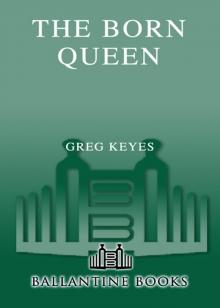 The Born Queen
The Born Queen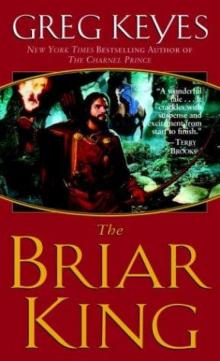 The Briar King
The Briar King Star Wars The New Jedi Order - Dark Journey - Book 10
Star Wars The New Jedi Order - Dark Journey - Book 10 Star Wars: New Jedi Order Book 8b: Emissary of the Void
Star Wars: New Jedi Order Book 8b: Emissary of the Void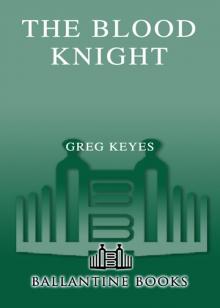 The Blood Knight
The Blood Knight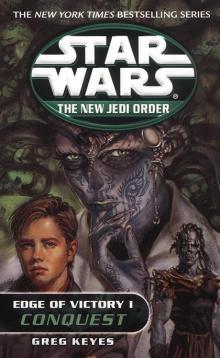 Star Wars - Edge of Victory - Book 1: Conquest
Star Wars - Edge of Victory - Book 1: Conquest Edge of Victory 2 Rebirth
Edge of Victory 2 Rebirth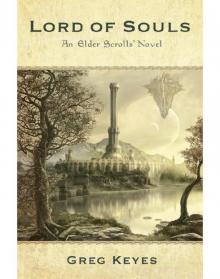 Lord of Souls: An Elder Scrolls Novel
Lord of Souls: An Elder Scrolls Novel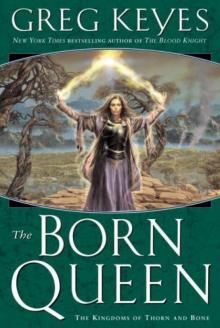 The Born Queen tkotab-4
The Born Queen tkotab-4 Rebirth: Edge of Victory II
Rebirth: Edge of Victory II Conquest: Edge of Victory I
Conquest: Edge of Victory I Emissary of the Void
Emissary of the Void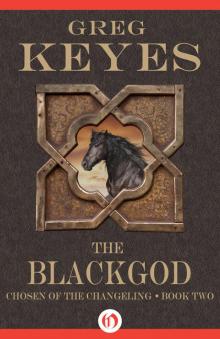 The Blackgod
The Blackgod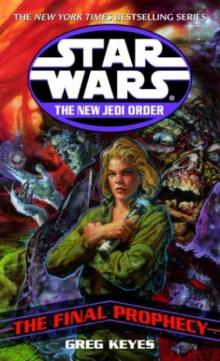 Star Wars The New Jedi Order - The Final Prophecy - Book 19
Star Wars The New Jedi Order - The Final Prophecy - Book 19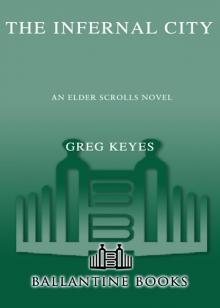 The Infernal City
The Infernal City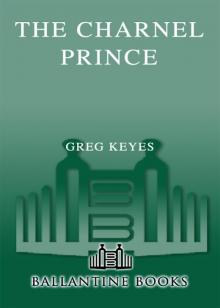 The Charnel Prince
The Charnel Prince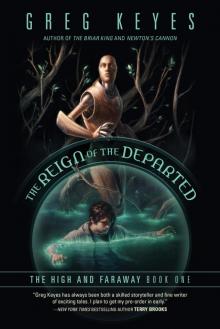 The Reign of the Departed
The Reign of the Departed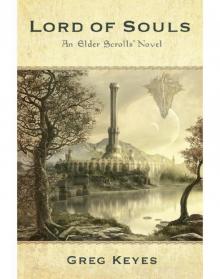 Lord of Souls es-2
Lord of Souls es-2 Chosen of the Changeling
Chosen of the Changeling Dawn of the Planet of the Apes
Dawn of the Planet of the Apes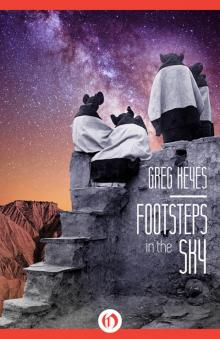 Footsteps in the Sky
Footsteps in the Sky PACIFIC RIM UPRISING ASCENSION
PACIFIC RIM UPRISING ASCENSION The Final Prophecy: Edge of Victory III
The Final Prophecy: Edge of Victory III